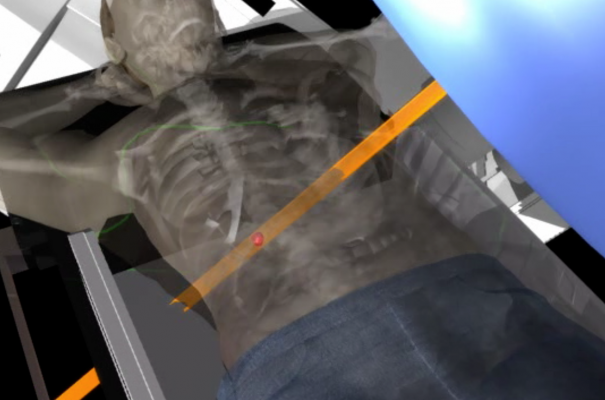
January 13, 2015 — For lung cancer that cannot be removed with surgery, radiotherapy is the primary treatment option. However, it is associated with a range of side effects, including fatigue and inflammation of the esophagus and lungs. Current methods to record lung-cancer treatment-related toxicities rely on assessment by healthcare professionals. Now a team from The University of Manchester and The Christie NHS Foundation Trust — both part of the Manchester Cancer Research Center — has explored the use of patient-reported outcomes to improve the recording of side effects for lung cancer patients.
Corinne Faivre-Finn, M.D., a researcher in The University of Manchester's Institute of Cancer Sciences and a consultant based at The Christie NHS Foundation Trust who led the research, said: "Such patient-reported outcome tools have been mainly evaluated for use with chemotherapy treatments. We wanted to assess their feasibility and relevance in lung cancer patients undergoing radiotherapy."
The group looked at the agreement between side effects as reported by doctors and the patients themselves. They also evaluated the relationship between reported toxicities and quality-of-life measures, relating to aspects such as tiredness, anxiety and shortness of breath.
Patients were asked to fill in questionnaires covering both side effects and quality of life at three time points: before treatment, at the end of radiotherapy and at later follow-up. The consultants answered questions at identical time points covering the same common radiotherapy-related toxicities for each patient.
The study found that there was strongest agreement between the patient's scoring of side effects and measures relating to their quality of life. Toxicities as recorded by the clinicians appeared to underestimate their severity.
"This was the first study in Europe to explore such a patient-centered approach to recording side effects. Incorporating this method into cancer care could allow us to detect and manage serious effects earlier. It could also improve patient-doctor relationships and help doctors better understand the full impact of treatment on patients," added Faivre-Finn.
This tool has been integrated into a European project - REQUITE - led from The Christie, aiming to validate predictive models and biomarkers of radiotherapy toxicity to reduce side effects and improve quality of life in cancer survivors.
For more information: www.requite.eu


 August 09, 2024
August 09, 2024 








